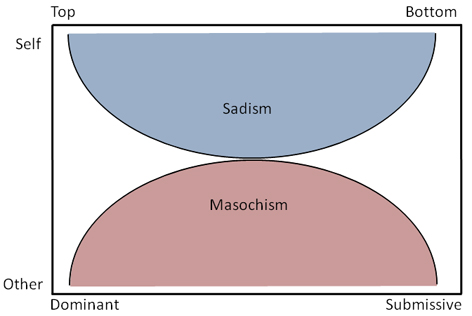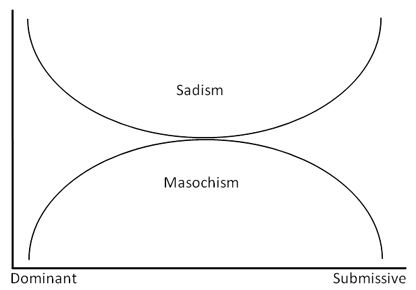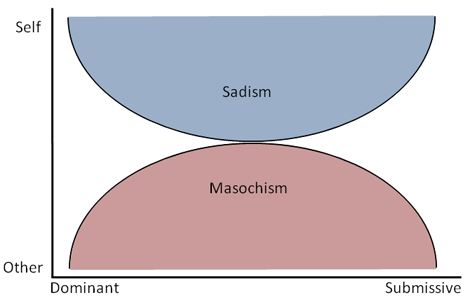Live in harmony (φρονοῦντες, a form of φρονέω) with one another; do not be haughty but associate with the lowly. Do not be conceited.[1] I can’t find live or harmony in the Greek here, τὸ αὐτὸ εἰς ἀλλήλους φρονοῦντες. The phrase translated do not be haughty is μὴ τὰ ὑψηλὰ φρονοῦντες (literally, “no lofty thought” or “no high-mindedness”). I would translate the first sentence, “Think of one another” or “Consider one another, not generalities, but specifics,” the down and dirty, nitty-gritty of another’s life and outlook. For by the grace given to me, Paul already wrote, I say to every one of you not to think more highly (ὑπερφρονεῖν, a form of ὑπερφρονεώ) of yourself than you ought to think (φρονεῖν, another form of φρονέω) but to think (φρονεῖν, another form of φρονέω) with sober discernment (σωφρονεῖν, a form of σωφρονέω), as God has distributed to each of you a measure of faith.[2]
Paul prayed, and I assume believed, that God would give his readers this thinking (φρονεῖν, another form of φρονέω) of one another, translated unity below: For everything that was written in former times was written for our instruction, so that through endurance (ὑπομονῆς, a form of ὑπομονή) and through encouragement (παρακλήσεως, a form of παράκλησις) of the scriptures we may have hope. Now may the God of endurance (ὑπομονῆς, a form of ὑπομονή) and comfort (παρακλήσεως, a form of παράκλησις) give you unity with one another (τὸ αὐτὸ φρονεῖν ἐν ἀλλήλοις) in accordance with Christ Jesus, so that together you may with one voice glorify the God and Father of our Lord Jesus Christ.[3]
Jesus began to show his disciples that he must go to Jerusalem and suffer many things at the hands of the elders, chief priests, and experts in the law, and be killed, and on the third day be raised. So Peter took him aside and began to rebuke him: “God forbid, Lord! This must not happen to you!” But he turned and said to Peter, “Get behind me, Satan! You are a stumbling block to me, because you are not setting your mind (φρονεῖς, another form of φρονέω) on God’s interests, but on man’s.”[4] Mark’s Gospel informs that Jesus spoke this way to Peter after turning and looking at his disciples.[5]
Then Jesus said to his disciples, Matthew’s Gospel continued, “If anyone wants to become my follower, he must deny himself, take up his cross, and follow me.”[6] This his disciples were already doing in the most literal way imaginable, but in their thinking they walked according to the flesh. The Holy Spirit had not yet been given. As Paul wrote the Romans, those who live according to the flesh have their outlook shaped (φρονοῦσιν, another form of φρονέω) by the things of the flesh…[7]
The Holy Spirit transforms our thinking: but those who live according to the Spirit have their outlook shaped by the things of the Spirit,[8] Paul continued. Keep thinking (φρονεῖτε, another form of φρονέω) about things above, not things on the earth, for you have died and your life is hidden with Christ in God.[9] I thank my God every time I remember you, Paul wrote believers in Philippi. I always pray with joy in my every prayer for all of you because of your participation in the gospel from the first day until now. For I am sure of this very thing, that the one who began a good work in you will perfect it until the day of Christ Jesus. For it is right for me to think (φρονεῖν, another form of φρονέω) this about all of you, because I have you in my heart, since both in my imprisonment and in the defense and confirmation of the gospel all of you became partners in God’s grace together with me.[10]
Paul expounded on this Holy Spirit thinking in his letter to the Philippians (2:1-13; 3:18-21 NET):
Therefore, if there is any encouragement in Christ, any comfort provided by love, any fellowship in the Spirit, any affection or mercy, complete my joy and be of the same mind (φρονῆτε, another form of φρονέω), by having the same love, being united in spirit, and having one purpose (φρονοῦντες, a form of φρονέω). Instead of being motivated by selfish ambition or vanity, each of you should, in humility, be moved to treat one another as more important than yourself. Each of you should be concerned not only about your own interests, but about the interests of others as well. You should have the same attitude (φρονεῖτε, another form of φρονέω) toward one another that Christ Jesus had, who though he existed in the form of God did not regard equality with God as something to be grasped, but emptied himself by taking on the form of a slave, by looking like other men, and by sharing in human nature. He humbled himself, by becoming obedient to the point of death – even death on a cross! As a result God exalted him and gave him the name that is above every name, so that at the name of Jesus every knee will bow – in heaven and on earth and under the earth – and every tongue confess that Jesus Christ is Lord [e.g., yehôvâh] to the glory of God the Father. So then, my dear friends, just as you have always obeyed (ὑπηκούσατε, a form of ὑπακούω), not only in my presence but even more in my absence, continue working out your salvation with awe and reverence, for the one bringing forth in you both the desire and the effort – for the sake of his good pleasure – is God.
For many live, about whom I have often told you, and now, with tears, I tell you that they are the enemies of the cross of Christ. Their end is destruction, their god is the belly, they exult in their shame, and they think (φρονοῦντες, a form of φρονέω) about earthly things. But our citizenship is in heaven – and we also await a savior from there, the Lord Jesus Christ, who will transform these humble bodies of ours into the likeness of his glorious body by means of that power by which he is able to subject all things to himself.
Paul stressed that this thinking is not something we accomplish in the flesh. He trusted God to accomplish it through his Spirit (Philippians 3:4b-15 NET):
If someone thinks (δοκεῖ, a form of δοκέω) he has good reasons to put confidence in human credentials (σαρκί, a form of σάρξ), I have more: I was circumcised on the eighth day, from the people of Israel and the tribe of Benjamin, a Hebrew of Hebrews. I lived according to the law as a Pharisee. In my zeal for God I persecuted the church. According to the righteousness stipulated in the law I was blameless. But these assets I have come to regard as liabilities because of Christ. More than that, I now regard all things as liabilities compared to the far greater value of knowing Christ Jesus my Lord, for whom I have suffered the loss of all things – indeed, I regard them as dung! – that I may gain Christ, and be found in him, not because I have my own righteousness derived from the law, but because I have the righteousness that comes by way of Christ’s faithfulness – a righteousness from God that is in fact based on Christ’s faithfulness. My aim is to know him, to experience the power of his resurrection, to share in his sufferings, and to be like him in his death, and so, somehow, to attain to the resurrection from the dead. Not that I have already attained this – that is, I have not already been perfected – but I strive to lay hold of that for which Christ Jesus also laid hold of me. Brothers and sisters, I do not consider myself to have attained this. Instead I am single-minded [ἓν δέ; “but one” or “one moreover”]: Forgetting the things that are behind and reaching out for the things that are ahead, with this goal in mind (σκοπὸν, a form of σκοπός), I strive toward the prize of the upward call of God in Christ Jesus. Therefore let those of us who are “perfect” embrace this point of view (φρονῶμεν, another form of φρονέω). If you think (φρονεῖτε, another form of φρονέω) otherwise, God will reveal to you the error of your ways.
In Galatians Paul was concerned specifically about Gentile believers accepting circumcision as necessary or beneficial, but I think we can hear his words in this context as well, if we were to turn this thinking from the Holy Spirit into a human program to “live in harmony” (Galatians 5:4-10a NET Table):
You who are trying to be declared righteous by the law have been alienated from Christ; you have fallen away from grace! For through the Spirit, by faith, we wait expectantly for the hope of righteousness. For in Christ Jesus neither circumcision nor uncircumcision carries any weight – the only thing that matters is faith working through love. You were running well; who prevented you from obeying (πείθεσθαι, a form of πείθω) the truth? This persuasion (πεισμονὴ) does not come from the one who calls you! A little yeast makes the whole batch of dough rise! I am confident (πέποιθα, another form of πείθω) in the Lord that you will accept (φρονήσετε, another form of φρονέω) no other view.[11]
Thinking of one another implies a mutual concern: I have great joy in the Lord because now at last you have again expressed your concern (φρονεῖν, another form of φρονέω) for me. (Now I know you were concerned [ἐφρονεῖτε, another form of φρονέω] before but had no opportunity to do anything.)[12] And it implies some tolerance for one another’s quirks: One person regards (κρίνει, a form of κρίνω) one day holier than other days, and another regards (κρίνει, a form of κρίνω) them all alike. Each must be fully convinced (πληροφορείσθω, a form of πληροφορέω) in his own mind. The one who observes (φρονῶν, another form of φρονέω) the day does (φρονεῖ, another form of φρονέω) it for the Lord.[13]
While I don’t doubt that this thinking from the Holy Spirit will result in something like harmony or unity or agreement eventually, I’m not entirely comfortable when forms of φρονέω are translated agree: I appeal to Euodia and to Syntyche to agree (φρονεῖν, another form of φρονέω) in the Lord;[14] and, Finally, brothers and sisters, rejoice, set things right, be encouraged, agree (φρονεῖτε, another form of φρονέω) with one another, live in peace, and the God of love and peace will be with you.[15] I don’t believe that the Holy Spirit meant some form of group-think or committee work.
The Jerusalem council agreed unanimously to send a letter to the Gentiles which read: For it seemed best to the Holy Spirit and to us not to place any greater burden (βάρος) on you than these necessary rules.[16] James’ abbreviated version of the law followed. It took individual believers not some corporate entity to set this error aright: For this is the love of God: that we keep his commandments. And his commandments do not weigh (βαρεῖαι, a form of βαρύς) us down, because everyone who has been fathered by God conquers the world.[17]
I would like to think that μὴ γίνεσθε φρόνιμοι παρ᾿ ἑαυτοῖς (literally, “not become wise from himself, herself or themselves”) meant to become wise through the Holy Spirit. But Paul used φρόνιμοι (a form of φρόνιμος) facetiously three other times (Romans 11:25, 1 Corinthians 4:10 and 2 Corinthians 11:19 NET). Do not be conceited may be an adequate translation. Only Jesus used φρόνιμοι seriously (Mathew 10:16-20 NET):
I am sending you out like sheep surrounded by wolves, so be wise (φρόνιμοι , a form of φρόνιμος) as serpents and innocent as doves. Beware of people, because they will hand you over to councils and flog you in their synagogues. And you will be brought before governors and kings because of me, as a witness to them and the Gentiles. Whenever they hand you over for trial, do not worry about how to speak or what to say, for what you should say will be given to you at that time [Table]. For it is not you speaking, but the Spirit of your Father speaking through you.
[5] Mark 8:33 (NET)
[11] NET note 11: “Grk ‘that you will think nothing otherwise.’”
[15] 2 Corinthians 13:11 (NET)
[16] Acts 15:28 (NET) Table



